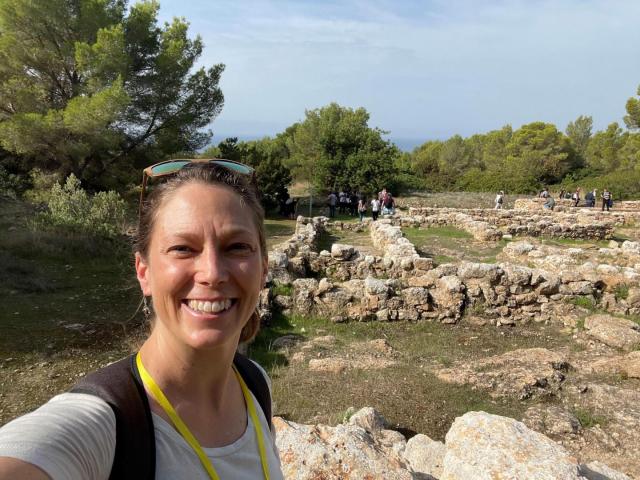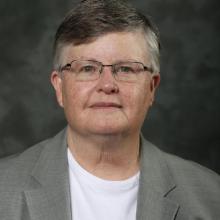
Associate Professor of History, Sarah Malena, presented research based on her new project, Women of the Ancient World (WOAW), an interactive website featuring graphic-novel-style illustrations that is designed to be a teaching resource and research forum. Professor Malena is co-directing the project with Associate Professor Shawna Dolansky of Carleton University (Ottawa, Canada). The project also employs a team of creators and researchers, which includes SMCM History and Anthropology major Sophie Hannah.
Professors Malena and Dolansky recently introduced the new project to their scholarly communities at the 10th International Congress of Phoenician and Punic Studies held October 17-21 in Santa Eulalia des Riu, Ibiza, Spain, and at the Society of Biblical Literature annual meeting held November 19-22 in Denver, Colorado. In addition to unveiling the project as a whole, the presentations addressed the project’s first installment, an examination of the 9th century BCE Phoenician-Israelite queen Jezebel, known from the books of 1 and 2 Kings in the Hebrew Bible. In the presentations, Professors Dolansky and Malena discussed their use of graphic-novel-style illustration and the interactive website as tools for historical inquiry. They also presented research related to the historical and cultural contexts that underlie their graphic reconstructions and how the use of illustration contributes to historical arguments.
Other members of the WOAW team presented a poster at the annual meeting for the American Society of Overseas Research held November 17-20 in Boston. Maps and timelines created by Sophie Hannah were featured in the poster presentation; these resources will accompany the Jezebel story on the WOAW website. The public is invited to visit http://woawhistory.com/ to learn more and sign up for updates.
The WOAW project is supported through a generous Social Sciences and Humanities Research Council (Canada) Insight grant, as well as funding from St Mary’s College of Maryland and Carleton University.



